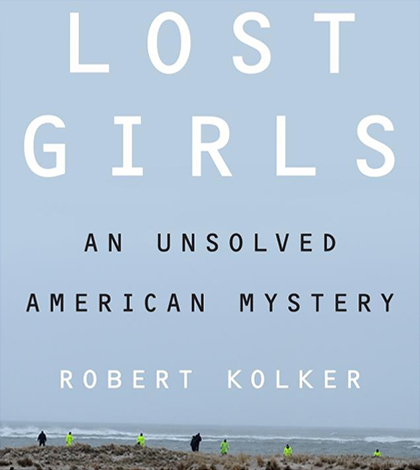
I’ve made it a point to avoid anything connected to the “Long Island Serial Killer” case that results in a profit for anyone other than the victims’ families. So I had no intention of reading Robert Kolker’s just-released Lost Girls, essentially a 416-page character analysis and life history of everyone connected to the case, from the victims and their families to internet sleuths and quirky local residents.
Then I was contacted by one of the victim’s family members. She was upset over what she claimed were misrepresentations in Kolker’s book and thought I had something to do with it due to the book having the same title as a series of articles I began writing when Megan Waterman disappeared in 2010, also titled Lost Girls.
Although not mentioned by name, part of my Lost Girls article is quoted by Kolker in his Lost Girls book, I realized as I flipped through, so I decided to read from page one.
Lost Girls, the book, expands upon an article Kolker wrote for New York Magazine in 2011, “A Serial Killer in Common.” Drawing from an arsenal of extensive interviews, both the article and the book give a comprehensive look at all the people connected to the victims as well as the rocky pasts that led these women to the streets.
The criticisms I have of this book are not in the writing or the reporting. Both are done extremely well. But, while the majority of the book is written with a non-judgmental sympathetic view of the victims, one rarely found in the mainstream media, Kolker’s Lost Girls also reads like a long-form indictment of the women’s mothers, and even grandmothers, which I imagine has added even more stress to already existing familial rifts.
Whether the not-so-flattering portrayals in this book are deserved or not, it feels the reader is being told things that no one has a right to know. To state in print, no matter who the source, that one victim “despised her mother” seems unfair and unnecessary.
And at a time when reality TV is the norm, personal details of who is sleeping with whom, who only dates black men, which family members didn’t visit the other in rehab, who has an eating disorder, who owes what on their mortgage and intimate sexual details of encounters with johns may not seem like a big deal. But these women are dead. And it feels like they deserve something in return for sharing their stories—or having those stories shared for them.
As a book, Lost Girls is a good read, a well-written and engaging narrative that does something very important—it once again shines a light on these cases that, at least in the public eye, have gone cool. Just keep in mind as you read that this isn’t merely a story. These characters are real people and this tragic tale doesn’t end for them, as it ends for you, when the book does.
Shannan Gilbert’s case will be featured on an updated episode of 48 Hours on CBS Saturday, July 20 at 10 p.m. The original episode aired in July 2011.



























